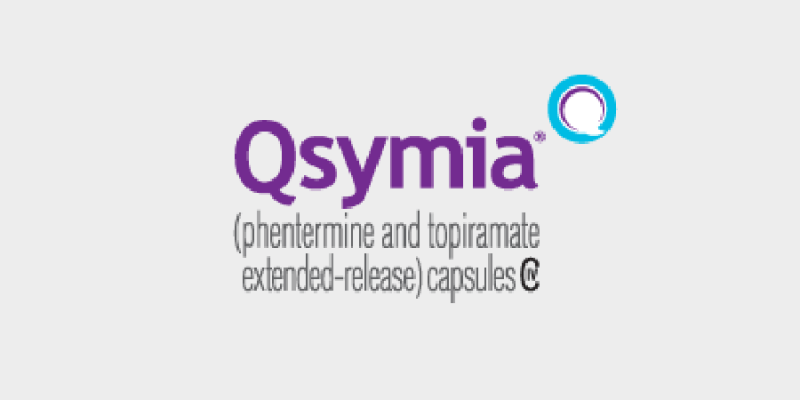Qsymia
What You Need To Know About Qsymia – Weight-Loss Capsules
Losing weight using only willpower is difficult, but you don’t have to do it on your own. When Qsymia is used together with increased physical activity and a reduced-calorie diet to helps you set realistic expectations and manage your weight-loss plan. Qsymia is prescribed for chronic weight management of obese adults, or weight reduction of overweight adults who have medical conditions like type 2 diabetes, high blood pressure, or high cholesterol.

Medical Uses
Qsymia is a combination of Topiramate, an anticonvulsant or antiepileptic, and Phentermine, an appetite suppressant from a class of drugs called sympathomimetic amines. Qsymia may help with weight loss by increasing the amounts of energy in the body, decreasing your appetite, or by affecting areas of the brain.
Dosage Information
Discussing your medical history with your doctor is very important before using Qsymia. Qsymia is to be taken orally with or without food as directed by your doctor, usually once daily in the morning as taking later in the day may cause insomnia. Swallow these capsules whole, as crushing or chewing them releases all of the drug at once, which highly increasing the severity of side effects. Drink plenty of liquids while taking Qsymia to prevent kidney stones, unless instructed otherwise by your doctor.
If Qsymia becomes less effective after several weeks, talk with your doctor. It is very important that you do not increase dosage amounts, frequency of consumption, or use for longer than prescribed. Your weight loss will not increase in speed or amount lost, but your risk of side effects will. Qsymia is known to cause addiction, especially for those who have already suffered with substance abuse. As such, it is important to take this drug exactly as it has been prescribed to lower risks of addiction. And if you suddenly stop use of this medication, you may experience symptoms of withdrawal, such as seizures.
Side Effects
Qsymia can cause many side effects including drowsiness, dizziness, blurred vision, cottonmouth, insomnia, tiredness, tingling extremities, constipation, and strange or metallic taste in the mouth. If these side effects persist or become worse, you should inform your doctor.
If you experience any of the more serious side effects like difficulty concentrating, struggling to form sentences, memory loss, painful urination, fever, chills, pink or red urine, irregular breathing, irregular heartbeat, broken bones, unconsciousness, changed sexual ability or interest, unusual bleeding, or easy bruising, you should contact your doctor as soon as possible.
Immediately seek medical help for these very serious side effects of severe headaches, slurred speech, seizures, dizziness, constant fever, depression, suicidal thoughts, mood disorders, or weakness on either side of the body.
It is possible but rare for Qsymia to cause serious and sometimes fatal lung or heart problems, such as pulmonary hypertension or heart valve problems, but the risk increases with prolonged use of this medication, or when combined with herbal products or other appetite-suppressants. It is important to cease taking Qsymia immediately and call your doctor if you experience very serious side effects like chest pains, fainting, swelling of extremities, difficulty breathing with exercise, or decreased ability to exercise.
Rarely, Qsymia may cause a very serious eye problem within the first month, and if untreated, it can cause permanent blindness. Also rare are serious allergic reactions to Qsymia. However, find immediate medical help if you notice any eye pain or vision issues, as well as any symptoms of serious allergic reactions.
This is not a complete list of all side effects which could be caused by Qsymia, so talk to your doctor if your side effects are not mentioned above.
Precautions
Blood sugar levels should be checked regularly if you have diabetes and the results should be shared with your doctor.
Qsymia must not be used during pregnancy as it can harm an unborn child. A negative pregnancy test is required before you can begin, as well as every month while using this drug. Saxenda may also have undesirable effects on breastfed babies, so nursing is not recommended.
There are many products and medications that may negatively interact with Qsymia such as coffee, birth control pills, Orlistat, Appetite-Suppressants, some Medical or Laboratory tests, Codeine, Methylene Blue, or Safinamide; and a wide range of stimulants such as Methylphenidate, Amphetamines, Cocaine, and MDMA or Ecstasy. Among many others.
We Welcome You!
Attempting to resist the constant daily cycle of hunger cravings when trying to lose weight can be extremely frustrating because willpower alone is often just not enough. So, contact our team today and find out if the around the clock control of Qsymia is right for you.

